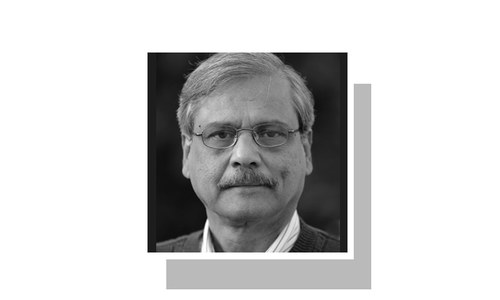KARACHI: Unless the Pakistani state applies commensurate pressure, efforts to persuade the Afghan Taliban to open a dialogue with the government in Kabul will not prove fruitful, said acclaimed author and journalist Ahmed Rashid at a lecture here on Friday.
“Unless you have a carrot-and-stick policy,” you will face failure, he said, adding that some of the sticks could include cutting off the supplies of the Taliban leadership reportedly in Pakistan and asking them to leave the country.
Mr Rashid was speaking at the Pakistan Institute of International Affairs on ‘Continuing Search for Stability: Pakistan and Afghanistan’.
The writer said “it is a fallacy” that “we are defeating the Pakistani Taliban”, as the Afghan Taliban were hosting “enemies of Pakistan” on Afghan territory in areas they controlled, beyond the reach of the Kabul government, while Pakistan continued to provide shelter to Afghan Taliban on its soil. This “dichotomy” needs to be addressed, he observed.
Mr Rashid started his talk with reference to the China-Pakistan Economic Corridor and other regional projects. He said connectivity was currently the “buzzword”, although the idea was not new. “The Silk Route was also [about] connectivity,” he said, although he warned that there could be no connectivity while instability and insecurity remained in the region.
“How do we end the conflicts Pakistan is engaged in?” he asked, while listing Karachi, Balochistan, the Afghan Taliban in Pakistan and the Pakistani Taliban as key issues. “How do we link connectivity with stability and security?”
Mr Rashid lamented that “we have used proxy extremist groups to run our foreign policy”, adding that wars had been triggered by such proxies, as far back as the 1947-48 conflict with India. “The military has usually depended on these proxies,” he said, adding that it was a “mistake” to use non-state actors after Pakistan went nuclear.
Today, Mr Rashid said, all regional countries, including India, Iran, Russia and the Central Asian states, were backing different Taliban factions in Afghanistan. “When you use proxies, neighbours will do the same.”
The analyst said that Pakistan had made two “grievous mistakes” in its foreign policy; the first, he observed, came at the end of the Cold War, around 1991-92, when Pakistan decided to “move proxy resources to Kashmir”. This radicalised the Kashmiri nationalist movement. Today, he said, the Kashmiri struggle had gone back to becoming a nationalist one.
The second mistake, Mr Rashid said, was when Gen Pervez Musharraf in 2003 made “a U-turn” and decided to revive the Afghan Taliban. This aided the growth of the Pakistani Taliban and by 2005-06 the local militants were calling for the overthrow of the Pakistani state.
In the context of the current Afghan dialogue process, Mr Rashid said that “the [Afghan] Taliban don’t posture — when they say something, they mean it”.
He said Afghanistan’s internal situation was also problematic. “It’s been a big failure” as the United States has spent $1 trillion but efforts to stabilise the country have failed. He said the US “deserted” Afghanistan for Iraq in 2003 and also left Iraq “too early”. He said there was no plan for state-building or nation-building in Afghanistan, while as a result of the drawdown of Western forces there was “mass unemployment” in that country.
Politically, he said, “the West has endorsed two rigged elections” in Afghanistan; Hamid Karzai’s re-election and the last election which brought Ashraf Ghani to power. This has exacerbated the ethnic divide in Afghanistan. As for the military situation, “it has never been worse than it has been now”, Mr Rashid said, adding that he foresaw the Taliban capturing an Afghan province or city in the next three months, which could lead to the division of Afghanistan. “If one province falls there will be a domino effect and panic in Kabul.”
He said that while the military had made gains against militants through Operation Zarb-i-Azb, these gains might be short-lived as the extremists were taking refuge in Afghan territory under the control of the Afghan Taliban.
Mr Rashid said that while China was promising to build infrastructure that would help develop Pakistan’s links with the region and the world, which he dubbed “the project of the century”, there were weaknesses. Primary among these was the fact that Pakistan had hosted Uyghur militants, which could “seriously affect relations with China”. He said the Uyghurs harboured notions of becoming “global jihadists”, which worried China. In turn the People’s Republic was “punishing” ordinary Uyghurs within its borders for the deeds of militants.
During the question and answer session, Mr Rashid said Iran, Russia and the Central Asian states should be invited to join the Quadrilateral Coordination Group on Afghan peace talks. He also said that at some point down the line, Pakistan would have to hold dialogue with India on Afghanistan. “India will be in Afghanistan, whether we like it or not.”
He added that should Afghanistan fragment, it would create greater security problems for Pakistan because militants would still be able to use that territory.
Published in Dawn, March 12th, 2016















































